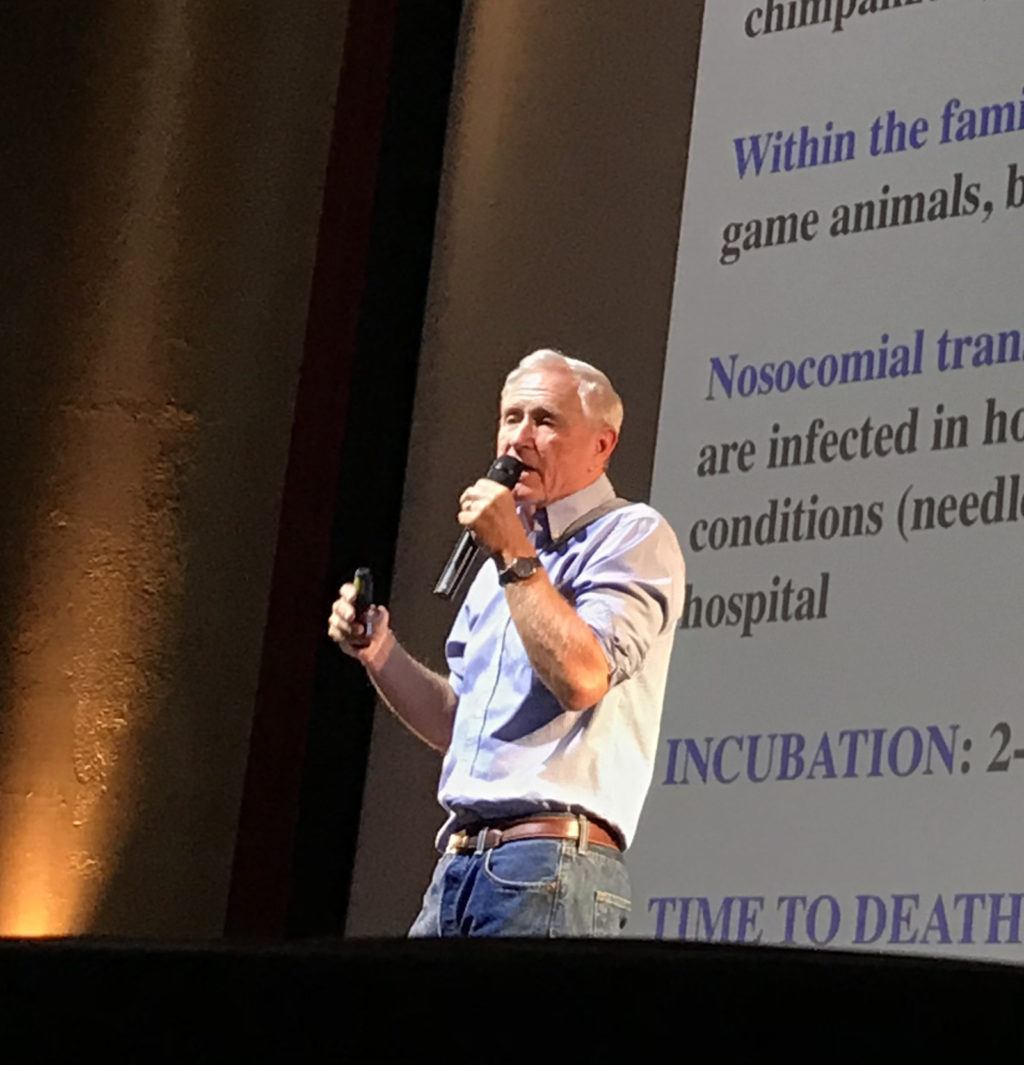WSU Vancouver professor Barry Hewlett recently spoke to a full house at Kiggins Theater about his experience as an anthropologist during the 2000 Ebola outbreak in Uganda. According to Hewlett, he was the first social scientist of any kind to join the World Health Organization (WHO) medics during an Ebola outbreak.
The Science on Tap events hosts a series of lectures in partnership with WSU Vancouver, which helps to partially fund the location and find the guest speakers. The series started in 2006 as “Science Pub” by Amanda Thomas. After partnering with OMSI and growing in publicity, the series became Science on Tap and now has two lectures every month in the Alberta Rose Theatre and the Kiggins Theatre.
Amber Peoples, organizer and host of the project said, “Science on Tap is fun science learning with alcohol influence… but at the end of the day, it’s about spreading education in a way that is fun and accessible.”
During his Science on Tap lecture on Sept. 12, professor Hewlett recalled a communication problem with the 2000 Ebola outbreak. The World Health Organization buried victims of the Ebola virus in unmarked graves without informing their family members. Due to a communication gap, this caused some locals to speculate why their loved ones were disappearing. Hewlett’s contribution helped mend the gaps of communication and knowledge between the medics and the affected locals.
Hewlett holds a doctorate degree in anthropology. His primary research areas are childhood anthropology and infectious and parasitic diseases. In 2000, Hewlett became the first social scientist to cover an Ebola outbreak when he traveled to Uganda during the 2000/01 outbreak.
Hewlett said in his lecture that he views anthropologists as cultural brokers. He elaborated on this view saying they (anthropologists) help bridge major cultural differences between two groups.
Spending 25 years working in Central Africa, Hewlett primarily studied father-infant attachment behaviors with an emphasis on Aka fathers. In his book titled “Intimate Fathers” Hewlett explains how Aka Pygmies, who are a nomadic tribe of hunter-gatherers, live in the tropical forest regions of Central African Republic and People’s Republic of the Congo. He also studied diseases such as urinary schistosomiasis. His work with these types of diseases helped him prepare for his trip to Uganda.
“Generally, the first cases are locally associated with sorcery, and this is what you read in the newspaper and makes them look primitive,” Hewlett said.
Hewlett realized the importance of sorcery in African culture after spending a majority of his life there. During the outbreak, he learned about the different ways it might affect the villages. While sorcery is important to the local culture, Hewlett’s knowledge demonstrated that sorcery is not the only potential connection with Ebola.
“Once the numbers of deaths increase—with Ebola or any type of deadly outbreak—people can make the distinction… they have indigenous local concepts about [an] epidemic,” Hewlett said.
Hewlett used an example in his Science on Tap lecture to describe the transmission of Ebola from animals to locals.
“Say you have a bat and the bat’s up on a tree and it eats a fruit. It gets its fluids on the fruit, the fruit drops to the floor. A chimpanzee comes by and eats it [the fruit]. The chimpanzee has contact with the fluid of the fruit bat.” He continued, “That chimpanzee dies and other chimpanzee touch the [dead] chimpanzee. Then people come along.”
Hewlett believes that going to Uganda during the Ebola outbreak helped set a precedent for the need of social scientists, such as anthropologists, in responding to outbreaks in various parts of the world. According to Hewlett, there are currently three social scientists with WHO in the Democratic Republic of the Congo, working on the latest Ebola virus outbreak.
